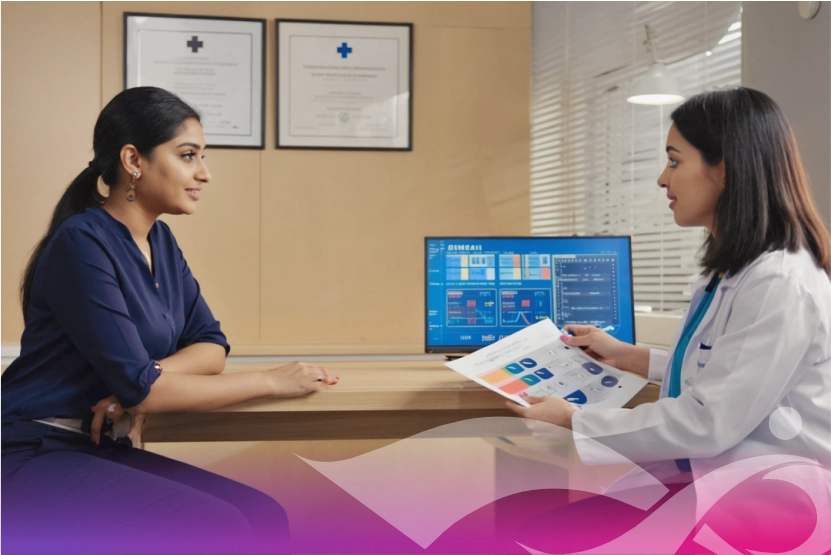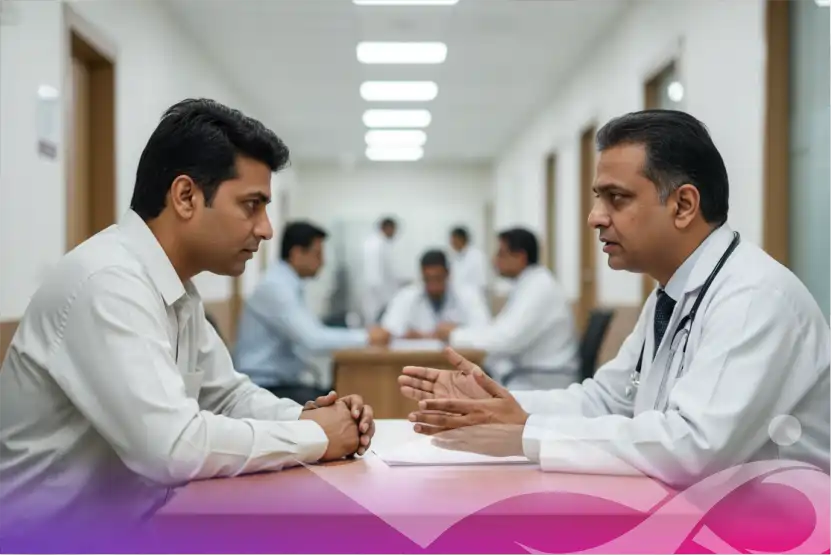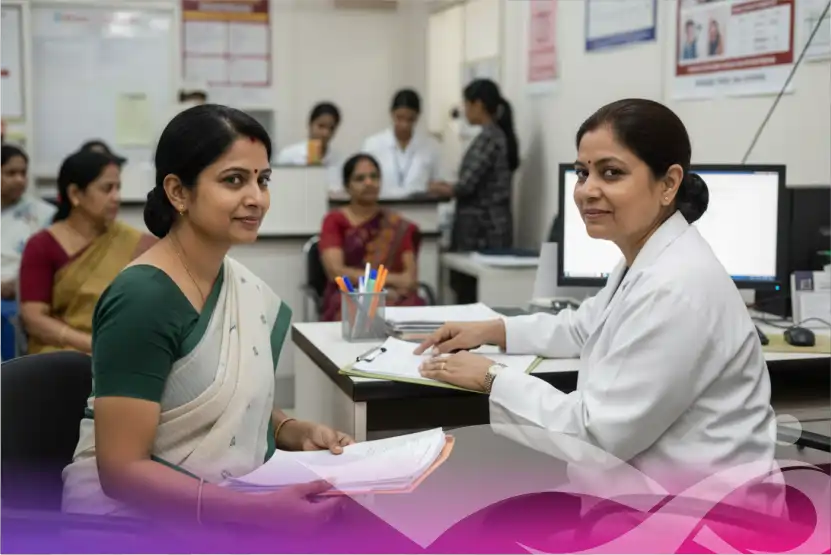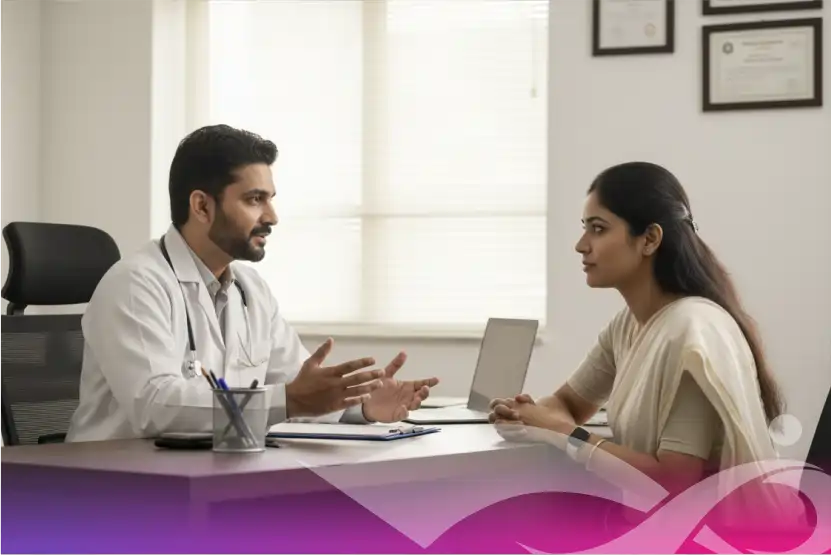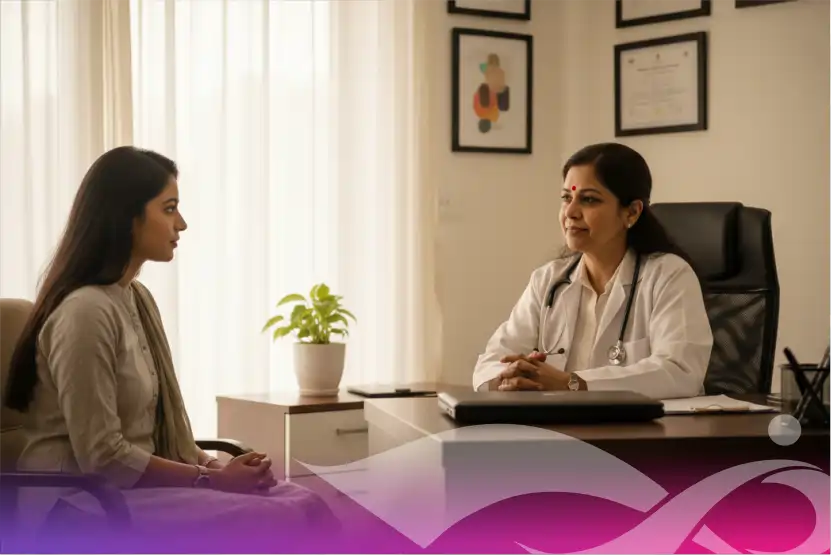Understanding your own risk factors becomes ever more crucial in the ongoing fight against cancer. Thanks to advances in genetic science, we now understand that many cancers have a hereditary component. Here is where genetic counselling for cancer is useful; a necessary service that can give you direction and knowledge for proactive medical decisions. At IOCI, we consider cancer treatment holistically and incorporate information on your inherited propensity.
Valuing the Relationship Between Genes and Cancer
Though most are sporadic—that is, developed by a mix of lifestyle, environmental factors, and random mutations over time—about 5–10% of cancers are inherited. This suggests that passed on through families, inherited genetic mutations cause them. Though often at an earlier age, these mutations do not guarantee disease even if they greatly increase the likelihood of several types of cancer.
Evaluating your family and personal medical history, a specialised healthcare practitioner known as a genetic counsellor determines whether you might be more likely to have inherited cancer. They will go over the benefits and negatives of genetic testing, help you grasp the findings, and succinctly describe the complex world of genes.
When should one think about genetic testing?
Although deciding whether or not to be tested is personal, there are several crucial considerations that would suggest you should consider genetic counselling and perhaps even testing:
- In family history, cancer is common: This is the best indicator most of the times. If you have several family members (on the same side of the family) who have had cancer, particularly at early ages, or if there is a pattern of particular cancers (e.g., breast and ovarian cancer, colon and uterine cancer) across generations, genetic testing may be helpful.
- Early Onset Cancer in Family: The family has early onset cancer if a close member was diagnosed with cancer at a much younger age than normal for that disease type—e.g., breast cancer before age 50, colon cancer before age 50.
- Specific Cancer Types: Among the several types of colon cancer, male breast cancer, pancreatic cancer, and ovarian cancer, are more often linked hereditary conditions in families.
- Many cancers inside one person: Should someone in your family have more than one primary cancer—such as breast cancer in both breasts or ovarian cancer—that person should be told.
- Should rare cancers run in your family and have a genetic component, this should be known.
- Known hereditary mutation in a family: Should a family member already have a particular cancer-causing gene mutation—such as Lynch Syndrome genes, BRCA1/2, etc.—then
Understanding your genetic risk can be particularly relevant for topics like breast cancer self-examination. Although all women should have self-exams, knowing your genetic inclination might inspire more careful self-monitoring and early clinical visits. It shifts the approach from general awareness to a more targeted and informed vigilance, helping to identify Symptoms of cancer in men and women more effectively.
Understanding Your Risk Has Benefits
Should genetic testing find a predisposition, it does not mean cancer is certain. Rather, it gives you knowledge to enable:
- Individualised Screening Plans: Designed specifically and frequently (e.g., earlier mammograms, MRIs, colonoscopies) to find cancer at its most treatable stage.
- Preventive Plans: In high-risk cases, options include even prophylactic operations or chemoprevention—medications to lower risk. This contributes to understanding How to reduce cancer risk naturally.
- Family Planning: Data for other family members may be at risk as well.
- Lifestyle Changes: Well-informed decisions on elements of lifestyle that might help to reduce risk.
Our IOCI genetic counselling services provide a gentle and comprehensive road map through this challenging surgery. Since knowledge is power, knowing your genetic blueprint will enable you to participate in proactive health management and improve long-term outcomes.
Consult us at any of our locations—across IOCI Noida, Greater Noida, Mumbai, Indore, Aurangabad, Agartala, Saharanpur, Kanpur and Jodhpur.






